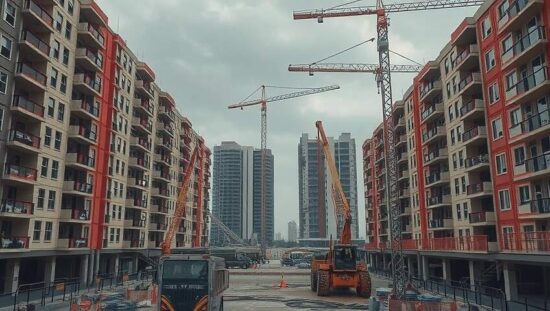The German construction sector is signaling a renewed sense of caution, with the Ifo Institute’s business climate index experiencing a slight decline in October, falling from -22.0 to -23.0 points. While the most recent figures avoid a deeper plunge, the downward trend underscores persistent challenges in a pivotal sector of the German economy, particularly raising questions about the effectiveness of government interventions aimed at stimulating housing development.
Companies reported marginally lower satisfaction with current business operations, compounded by a more pessimistic outlook for the coming months. Klaus Wohlrabe, head of Ifo surveys, succinctly characterized the situation, stating, “The path out of the valley is still long”. The lingering issue of a dearth of new orders remains a significant impediment to recovery.
A marginally positive development emerged from a slight decrease in the proportion of firms reporting insufficient orders, falling from 46.7% to 44.4%, marking the lowest level in roughly two years. However, Wohlrabe cautioned that this represents a limited improvement. “There is still a considerable backlog in building permits” he noted, highlighting a bottleneck preventing projects from progressing. The fact that building permit approvals remain constrained suggests an underlying structural issue hindering construction activity, which may be linked to complex bureaucratic processes and stringent regulatory hurdles.
Furthermore, the number of order cancellations only decreased slightly, from 8.4% to 8.0%, which remains at a concerningly high level. This continued prevalence of cancellations points to ongoing uncertainty within the market and potentially reflects a reassessment of investment strategies by developers facing fluctuating material costs and evolving demand.
The latest Ifo data raises critical questions for policymakers. While previous initiatives have aimed to ease pressure on the construction industry, the continued negative sentiment and backlog of approved projects suggest that more comprehensive reforms are needed to address the sector’s persistent difficulties. The question remains whether the current legislative framework is truly enabling the necessary construction to meet Germany’s acute housing shortage and stimulate broader economic growth.





